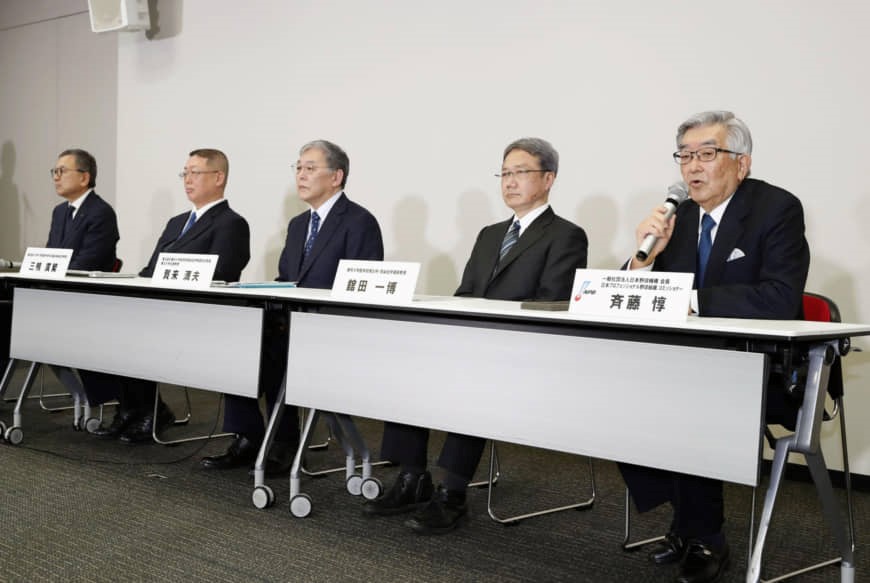
March 9, 2020
Nippon Professional Baseball has made the decision to postpone the start of its regular season as a result of the ongoing COVID-19 outbreak, the league announced on Monday afternoon.
The decision comes nine years after the 2011 campaign was postponed in the aftermath of the Great East Japan Earthquake and subsequent tsunami.
“We’ve decided to postpone the start of the season,” NPB Commissioner Atsushi Saito said during a news conference. “We’d like to prioritize playing 143 games with the fans. We will listen to the experts’ advice and we would like to open the season by at least the end of April.”
Earlier Monday, NPB and the J. League held a meeting of their joint task force, which was created to help the leagues make informed decisions amid the crisis.
The task force, a rare collaborative effort between Japan’s two biggest professional sports circuits, consulted with its expert panel of three medical professors, who advised the leagues to reconsider holding games as scheduled next week.
In addition to NPB pushing its start date back, the resumption of the J. League season, which was postponed Feb. 25 and set to resume on March 18, is also likely to be further delayed.
The medical panel, comprised of experts in infectious diseases, said that with games in the two leagues drawing large crowds to stadiums, there is not enough time to carry out preventative measures or educate players, staff and fans about the steps they should take while attending games.
Mitsuo Kaku, who is leading the panel of medical experts, said it is uncertain at this point when the number of infections will be under control. The Japanese government has requested the suspension of large-scale gatherings, including sporting events, and said over the weekend that it will decide on Sunday whether to extend that request.
Kaku, a specially appointed professor of medicine in the department of infection control and laboratory diagnostics at Tohoku Medical and Pharmaceutical University, insisted it would be hard to make any decisions under the current status quo and that the task force will have to wait until the government provides further information about the virus.
Aichi Medical University professor Hiroshige Mikamo said it would be “difficult to prepare” an appropriate amount of necessary materials, such as hand sanitizer, for those in attendance at large-scale sporting events.
“Professional baseball and soccer are the two biggest sports, and we would like to see them back in action,” Mikamo said. “In fact, the country is about to fall into an economic depression and we see only depressing news (because of the virus).
“We would like to share some good news, but there is not enough time until the 18th and 20th.”
The panel said that while it would be hard to completely control the risk of infection, the leagues and their teams would need to prepare protocols for fans, such as setting up thermometers at entrances in order to check body temperatures.
Asked what would be required for the panel to give a green light to the resumption of both leagues’ schedules, Kaku said that the panel discussed the possibility of playing behind closed doors or allowing a limited number of fans into stadiums to lower the risk of infection.
The panel also suggested both leagues take into account the “basic reproduction number,” which is considered an indicator of the contagiousness of infectious and parasitic agents, when deciding whether they should host games.
Saito suggested the baseball season could end later than originally planned. Currently, Game 7 (if necessary) of the Japan Series is scheduled for Nov. 15.
Saito stated that playing without fans would be “the final option” for NPB, which has already decided to hold all its spring games behind closed doors.
“I personally think that it’s almost an option that’s highly unlikely to happen,” Saito said.
According to J. League Chairman Mitsuru Murai, the morning meeting was attended by other sports entities including the Japan Olympic Committee, Japan Sports Agency and the Japan Top League Alliance.
© Baseball Federation of Asia. All RIGHTS RESERVED. / PRIVACY POLICY